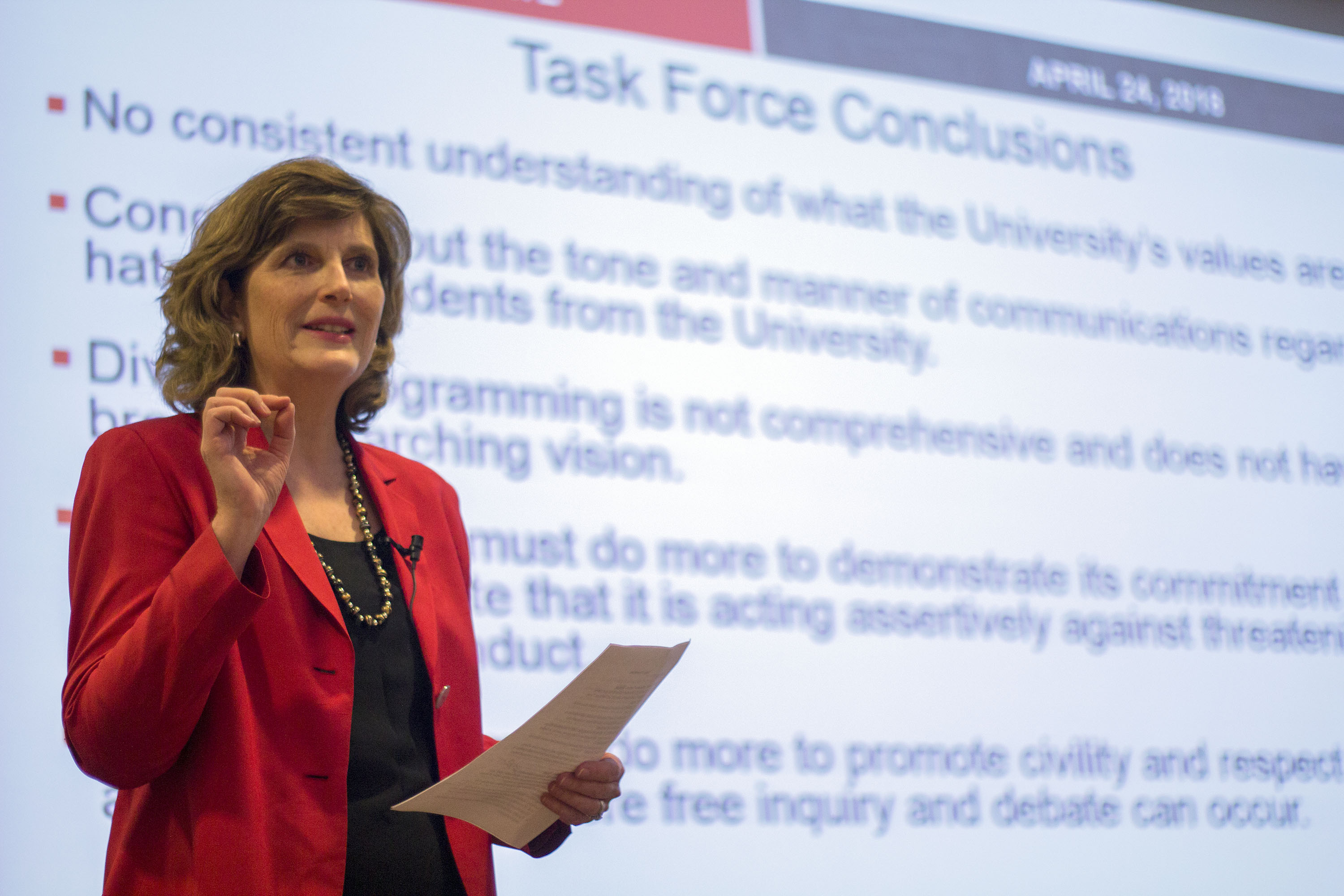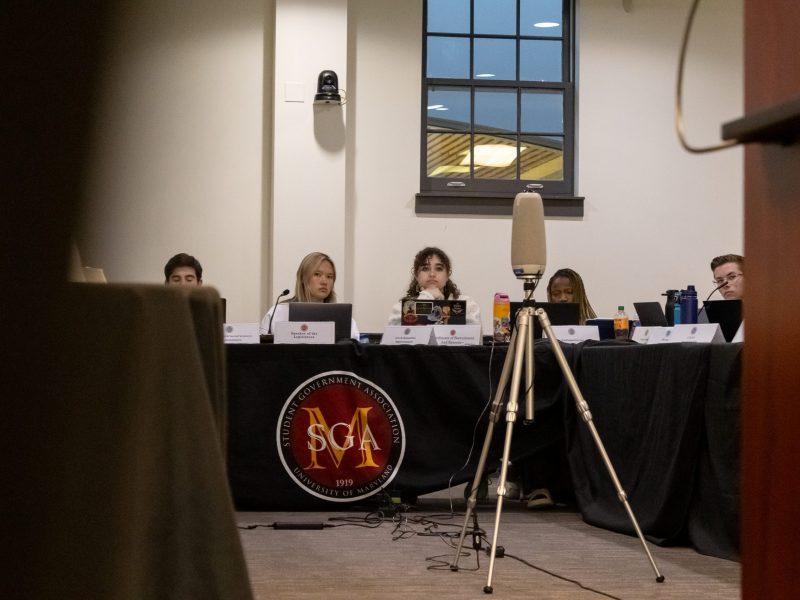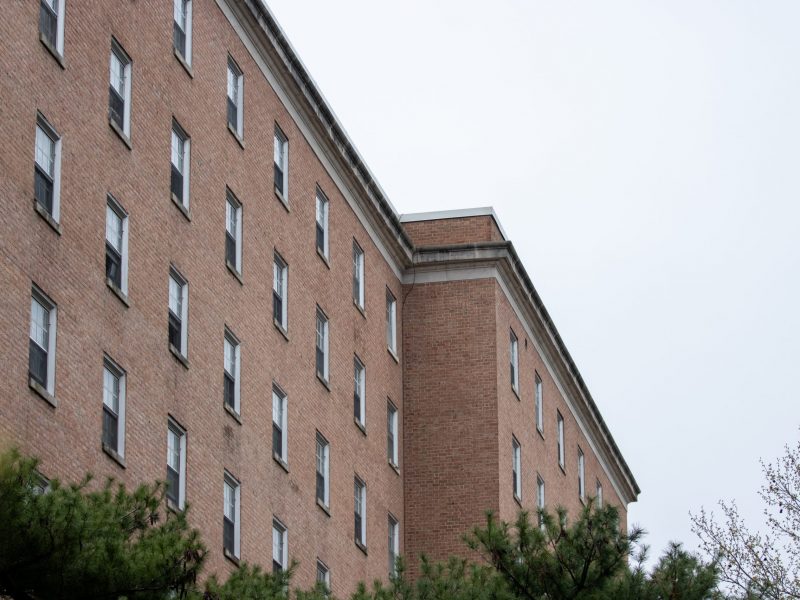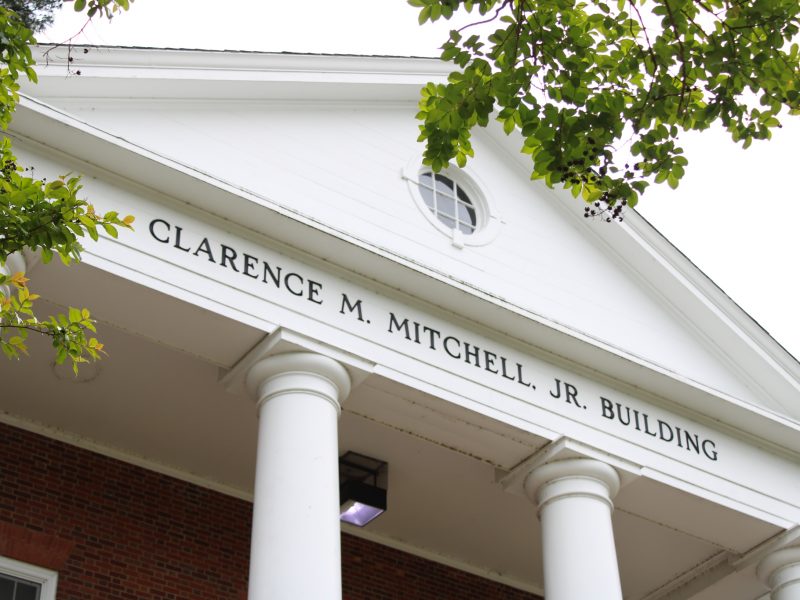The University of Maryland Senate approved Tuesday its inclusion and respect task force’s recommendations for preventing hate and promoting inclusion on the campus.
Two of the three co-chairs of the Joint President and University Senate Inclusion and Respect Task Force presented their recommendations to the senate, after which, the senate voted 77-4 with four abstentions to approve them.
The task force was formed after 2nd Lt. Richard Collins, a black Bowie State University student, was fatally stabbed on this university’s campus in May. Sean Urbanski, a white former student at this university, has been charged with murder and a hate crime in Collins’ death.
The group’s recommendations included instituting programs to teach faculty, staff and students how to prevent incidents of hate or bias; educating the campus community on diversity, inclusion and respect; improving hate and bias incident communications; and adopting a university values statement and a free speech values statement.
[Read more: Diversity task force proposes a policy on punishing threatening and intimidating conduct]
The task force also recommended a policy prohibiting hate- or bias-motivated conduct that is threatening or intimidating, but may not qualify as a crime.
Last spring, a noose was found hanging in this university’s Phi Kappa Tau fraternity chapter house, prompting a disciplinary review. The case has since been closed, with a university spokesperson noting in an email that “placing a noose is not considered a crime in the State of Maryland.”
The recommendations will be sent to university President Wallace Loh for approval, who has two weeks to make a decision unless he formally requests an extension.
Warren Kelley, assistant student affairs vice president and co-chair of the task force, said the university’s values should be communicated clearly to incoming students during orientation and the admissions process. The values statement says the university aspires to be united, respectful, secure, safe, inclusive, accountable, empowered and open to growth.
“We come from many different places, but we’re all Terps,” Kelley said. “We should work harder at creating more positive relationships between people.”
[Read more: UMD announces its new hate bias response coordinator]
The free speech values statement says the university protects freedom of speech, but urges individuals to consider the consequences of their words. It also recognizes the campus community members’ right to debate with other community members and those visiting the campus.
“The statement recognizes that offensive speech, while protected, can still hurt people, and we want people to be mindful that this free speech can do some harm,” journalism college dean and task force co-chair Lucy Dalglish said. “While we are not going to ban it, we need to recognize what it can do and we will be urging members of the campus community to consider the harm their speech can cause.”
Senator Rachel Gammons — speaking on behalf of Lindsay Inge, a librarian with Teaching and Learning Services — proposed an amendment to clarify that the diversity training classes would be for undergraduate and graduate teaching assistants as well. The amendment passed 65-12 with six abstentions.
“I proposed this because I thought it was important to highlight graduate and undergraduate students serving in instructional roles,” Inge said. “To my mind, ‘teaching assistants’ don’t fall neatly into the categories of staff or student, and should therefore be explicitly listed among the groups who could benefit from training opportunities in the areas recommended in the task force’s report.”
Pamela Lanford, a senator representing professional track faculty, said the recommendations were a step in the right direction but that more still needs to be done at this university to combat hate and bias.
“It is clear to me that the real hard work is yet to come,” she said. “I hope that we can encourage the institution to take direct action quickly and efficiently.”
After an 80-2 vote with four abstentions in favor of a revision to this university’s librarian appointment, promotion and permanent status policy, the provost will review cases in which eligible faculty and the dean of libraries make negative recommendations. In addition, the senate passed two separate motions to rename a master’s and PhD program.



